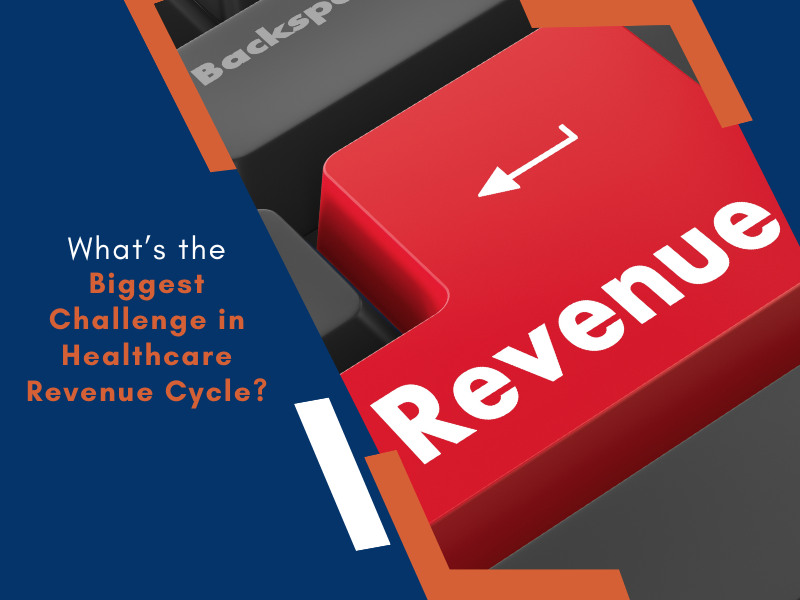The healthcare revenue cycle is at the heart of every healthcare organization. It encompasses all administrative and clinical functions that contribute to capturing, managing, and collecting patient service revenue. From patient registration to final payment, the revenue cycle involves multiple steps that must work seamlessly together. However, achieving this level of efficiency is easier said than done.
With the constant evolution of healthcare policies, increasing patient expectations, and growing complexities in billing systems, many organizations face significant challenges in managing their revenue cycles. Identifying the biggest challenge in this process requires delving into the specific pain points and understanding how they disrupt the system.
The Growing Complexity of Insurance Policies
One of the most pressing challenges in the healthcare revenue cycle is the growing complexity of insurance policies. As insurance companies continuously update their coverage terms, staying informed becomes a daunting task for healthcare providers. Patients often arrive without a clear understanding of their coverage, leaving providers to navigate an intricate maze of deductibles, copays, and prior authorizations.
Failure to verify insurance details accurately at the start of the patient encounter can lead to claim denials or delays in reimbursement, significantly impacting cash flow. Organizations must invest in robust systems and trained staff to manage insurance verifications and eligibility checks effectively.
Increasing Rate of Claim Denials
Claim denials remain one of the most challenging aspects of managing the healthcare revenue cycle. Denials often result from incomplete or incorrect documentation, coding errors, or missing information. Even minor mistakes can lead to significant revenue losses if not addressed promptly.
Moreover, resolving denied claims requires time, effort, and additional resources. For many organizations, a high denial rate translates to decreased cash flow and increased administrative costs. Addressing this issue demands a proactive approach that includes continuous staff training, adopting automated solutions, and monitoring trends to identify and resolve recurring issues.
Managing Patient Payment Responsibilities
Another growing concern in the healthcare revenue cycle is the shift in payment responsibility from insurance providers to patients. With the rise of high-deductible health plans, patients are now responsible for a larger portion of their medical expenses. This shift has significantly impacted revenue collection.
Many patients struggle to pay their bills, leading to an increase in bad debt for healthcare providers. Establishing clear payment policies, offering flexible payment plans, and providing upfront cost estimates can help alleviate this challenge. Additionally, integrating user-friendly payment systems and educating patients on their financial responsibilities can improve collections.
The Transition to Value-Based Care
The shift from fee-for-service to value-based care models is another critical challenge in the healthcare revenue cycle. Value-based care focuses on patient outcomes rather than the volume of services provided. While this approach benefits patients, it complicates the revenue cycle process for providers.
Tracking patient outcomes and linking them to payments require advanced data analytics, reporting tools, and staff training. Providers must adopt innovative solutions to ensure compliance with value-based care requirements while maintaining profitability.
The Impact of Evolving Regulations
Healthcare regulations are constantly changing, making it difficult for providers to keep up. Compliance with laws like the Health Insurance Portability and Accountability Act (HIPAA) and updates to Medicare and Medicaid policies requires vigilance and adaptation.
Non-compliance can result in penalties, audits, and damage to the organization’s reputation. To overcome this challenge, healthcare providers need to stay informed, invest in staff training, and utilize advanced software solutions that ensure adherence to regulatory standards.
Staff Shortages and Burnout
Another significant hurdle in managing the healthcare revenue cycle is staff shortages and burnout. The administrative burden associated with revenue cycle tasks, such as claim submissions, follow-ups, and patient billing, often overwhelms staff.
When staff members are stretched thin, errors are more likely to occur, resulting in delays and denials. To address this, healthcare organizations must focus on hiring and retaining skilled staff, offering continuous training, and leveraging automation tools to streamline repetitive tasks.
Inadequate Use of Technology
In today’s digital era, technology plays a crucial role in managing the healthcare revenue cycle efficiently. However, many organizations still rely on outdated systems or fail to utilize their existing technology to its full potential.
For instance, manual processes can lead to inefficiencies, errors, and delays. Implementing modern solutions such as automated claim processing, revenue cycle management software, and data analytics tools can significantly enhance operational efficiency and improve cash flow.
Data Integration Challenges
The healthcare revenue cycle involves multiple departments, including registration, billing, and collections. Effective data integration is essential to ensure a seamless flow of information across these departments. However, integrating data from various systems and platforms is often a challenge.
Lack of integration leads to duplicate entries, missing information, and delays in processing claims. Investing in integrated solutions and ensuring compatibility between systems can help mitigate these challenges.
Balancing Cost Containment with Quality Care
Healthcare organizations constantly struggle to balance cost containment with delivering quality care. Financial constraints often force providers to make tough decisions about resource allocation, which can impact revenue cycle management.
For instance, reducing staff or delaying technology investments might save costs in the short term but can lead to inefficiencies and revenue losses in the long run. A strategic approach that focuses on long-term gains rather than immediate cost savings is essential.
Strategies to Overcome Healthcare Revenue Cycle Challenges
Addressing the challenges in the healthcare revenue cycle requires a comprehensive and proactive approach. Here are some effective strategies:
- Invest in Staff Training: Ensure your team is well-trained in the latest billing, coding, and regulatory requirements to minimize errors.
- Leverage Technology: Adopt advanced solutions like revenue cycle management software, automated claim processing, and data analytics tools to streamline operations.
- Enhance Communication: Foster clear communication with patients regarding their financial responsibilities and payment options.
- Monitor Key Metrics: Regularly track and analyze revenue cycle metrics to identify inefficiencies and implement corrective measures.
- Collaborate with Experts: Partnering with experienced revenue cycle management companies can help you navigate complexities and achieve operational excellence.
Why Choose Apaana Healthcare for Revenue Cycle Management?
Navigating the complexities of the healthcare revenue cycle can be overwhelming, but you don’t have to do it alone. At Apaana Healthcare, we specialize in driving operational excellence with our global healthcare management solutions.
Our services include:
- Member Enrollment: Ensuring seamless patient registration and eligibility verification.
- Claims Administration: Streamlining claim submissions and follow-ups to maximize reimbursements.
- Medical Billing & Coding: Providing accurate and timely billing and coding services to minimize denials.
- Provider Engagement: Enhancing communication and collaboration with providers for better outcomes.
With a focus on cost-effective solutions, Apaana Healthcare is committed to helping you overcome revenue cycle challenges and achieve financial stability. Contact us today to learn how we can transform your revenue cycle management process.





